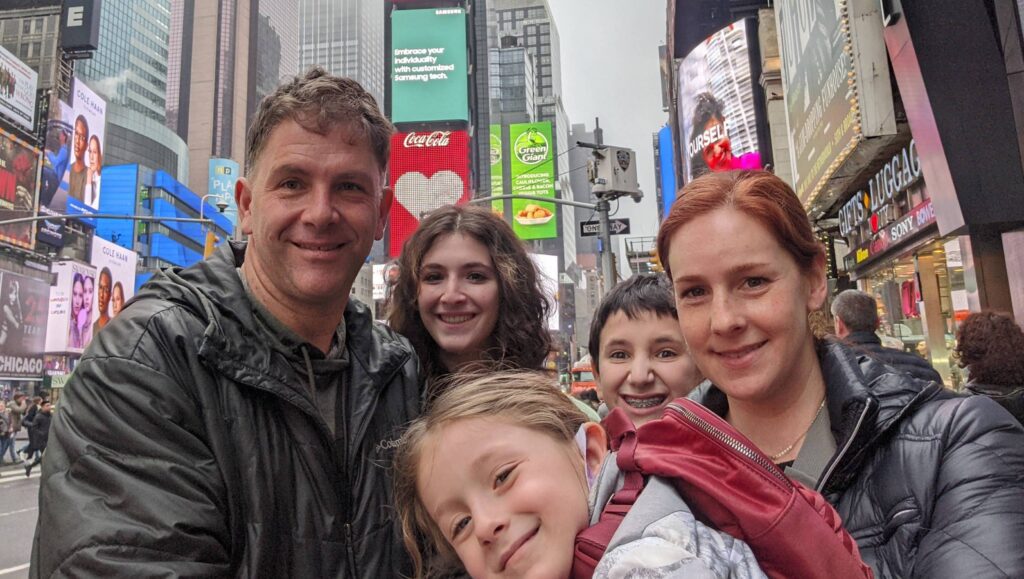Teaching Strategies Employee Spotlight: Luis, General Manager, International

 Luis has been captivated by global cultures for as long as he can remember. Before joining Teaching Strategies, he spent 6 years in product management, working for renowned companies such as Honeywell and Broan NuTone. He later joined Scantron Corporation, which is famously known for their #2 pencil bubble exams, where he became the Vice President of International. He collaborated with over 62 distributors across 78 countries and had the privilege of engaging with 18 different Ministries of Education.
Luis has been captivated by global cultures for as long as he can remember. Before joining Teaching Strategies, he spent 6 years in product management, working for renowned companies such as Honeywell and Broan NuTone. He later joined Scantron Corporation, which is famously known for their #2 pencil bubble exams, where he became the Vice President of International. He collaborated with over 62 distributors across 78 countries and had the privilege of engaging with 18 different Ministries of Education.
His modus operandi has always revolved around actively engaging with customers, immersing himself in the products, and delving deeper into understanding the solutions. This approach solidified his commitment to the remarkable work he undertakes at Teaching Strategies.
On a typical day as General Manager of International, you might find Luis assisting with customer onboarding due to his superuser privileges, presenting sales pitches to schools in Vietnam late into the night, or forging connections with leading figures in early childhood education (ECE). His true passion lies in creating a high-performing team that’s well equipped to captivate every prospective client. Together, they’ve been meticulously crafting a global strategy and gaining insights into diverse markets to cater to them more effectively.
Recently, we asked Luis to share his thoughts on work and life at Teaching Strategies.
How does The Creative Curriculum impact to children across differing learning environments? Communities? Ethnicities? Cultures?
There’s a prevalent misconception that we offer a U.S. curriculum. In truth, our developmental objectives and learning paradigms are universally applicable. The principle that children learn through play is a global one, supported by internationally renowned psychologists like Piaget, Vygotsky, Dewey, and Erik Erikson. However, in many countries, daycares and preschools often lack structured learning, and families primarily seek a safe environment for their children. I often remind my team that we represent more than just a business: we’re a movement. We aim to introduce purposeful learning methodologies to regions worldwide, focusing on fostering problem-solving and critical thinking skills. Visualize the profound impact of our curriculum in regions where children confront trauma or where their necessities are not guaranteed. Our curriculum levels the playing field, transforming every child —regardless of race, gender, or socioeconomic status—into inquisitive learners exploring the world through our Teaching Guides. This approach not only fosters equality but promotes a more inclusive global society, celebrating diversity, inquisitiveness, and a genuine passion for education.
Why do you feel ECE is so important to a child’s well-being and educational development?
Think of early childhood education as setting the groundwork for a skyscraper. In a rapidly changing world, those early years are when we lay down the foundation for future global citizens. It’s when children learn not just ABCs or 123s, but also empathy, adaptability, and resilience. By investing in early education, we’re shaping the leaders, innovators, and collaborators of tomorrow. And trust me, given the global challenges we face, we need every child, everywhere, to have that solid start.
Can you share your experience with how access to ECE has influenced children abroad?
I’ve had the privilege of visiting schools globally that have adopted our curriculum, and the depth of engagement and structure I’ve witnessed is unparalleled. Just a few months ago, I stopped by the Lincoln School in Costa Rica. There, I was captivated by a classroom using our Trees Teaching Guide. A child’s grandparents had sent in branches from a coffee tree, and the excitement in the room was palpable. Children eagerly asked questions as they examined the branches and compared them to other tree types. Witnessing the enthusiasm and sheer joy of learning was a testament to the transformative power of our solutions.
How are your voice and perspective reflected in your work?
I was raised in a society deeply entrenched in hierarchies, where your surname unlocked doors, and the schools and universities on your resume dictated your opportunities. I’ve witnessed countless talents fade into obscurity simply because of their background. But education? It’s our game changer. By making our curriculum accessible to schools across the globe, we’re breaking the notion that only the elite institutions hold the key to success. Our design empowers even the most underprepared teachers, giving them the tools to create profound impacts on their students.

Make a difference for teachers, children, and families with a career at Teaching Strategies!